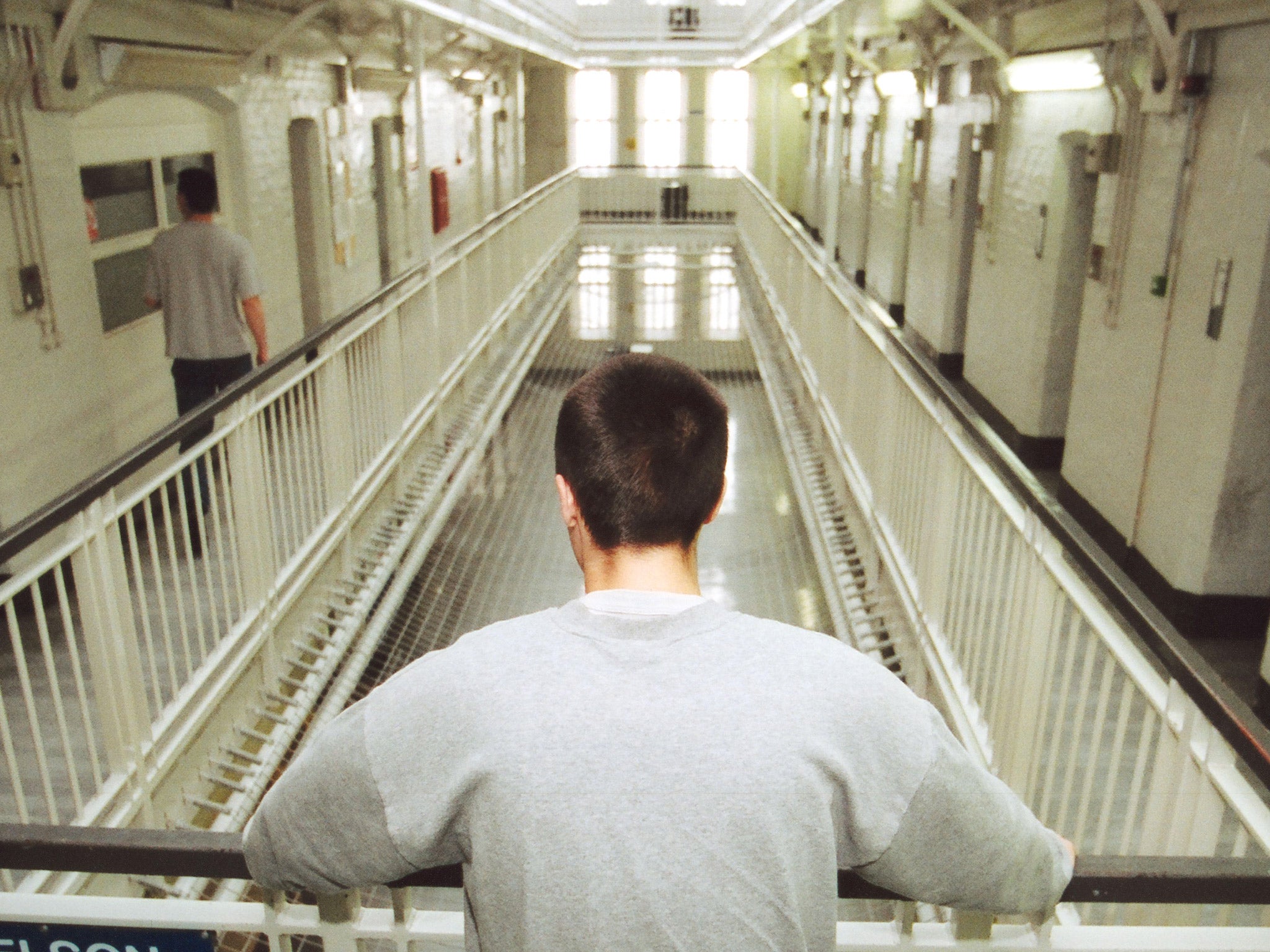Austerity cuts blamed for prisons ‘crisis’
Exclusive: Soaring inmate numbers and an increase in violence are blamed on biting austerity measures

Your support helps us to tell the story
From reproductive rights to climate change to Big Tech, The Independent is on the ground when the story is developing. Whether it's investigating the financials of Elon Musk's pro-Trump PAC or producing our latest documentary, 'The A Word', which shines a light on the American women fighting for reproductive rights, we know how important it is to parse out the facts from the messaging.
At such a critical moment in US history, we need reporters on the ground. Your donation allows us to keep sending journalists to speak to both sides of the story.
The Independent is trusted by Americans across the entire political spectrum. And unlike many other quality news outlets, we choose not to lock Americans out of our reporting and analysis with paywalls. We believe quality journalism should be available to everyone, paid for by those who can afford it.
Your support makes all the difference.The prison system is in deepening crisis, with soaring numbers of inmates and worrying increases in assaults and disturbances behind bars and the problems will intensify as austerity measures continue to bite, new research warns.
In just two weeks the jail population has leapt by 500 in England and Wales and tens of thousands of offenders are held in huge “warehouse” jails, a report by the Prison Reform Trust (PRT) discloses.
Nearly two-thirds of jails are overcrowded, according to the Ministry of Justice’s own definition, stoking up tensions among inmates and piling pressure on overstretched prison officers.
The bleak assessment came in the PRT’s annual analysis of the state of the prison system. Director Juliet Lyon said: “These latest figures reveal a prison service having to cope with unprecedented strain. Ministers must heed the warning signs.”
The PRT said the pressures were boiling over more frequently into violence. The prison service’s “gold command”, the group brought in to combat the most serious trouble, was convened every fourth day in 2013-14, a rise of 153 per cent in just two years.
A total of 1,575 serious assaults took place in prisons last year, the highest number for a decade and a rise of more than 300 over the previous 12 months. Meanwhile, 23,183 incidents of self-harm were recorded among inmates, a slight increase over the year before. In 2013 there were 215 deaths in custody, the highest number on record.
Last Friday, the jail population stood at 84,305, which represented an increase of more than 500, the equivalent of a small local prison’s capacity, in just a fortnight.
England and Wales now has an imprisonment rate of 149 per 100,000 of the population, compared with 100 in France and 77 In Germany.
According to the PRT, more than 40 per cent locked up in jails with a capacity of more than 1,000, with the proportion rising to nearly half with the construction of “super-prisons”. A 2,000-bed “titan” is planned in Wrexham to ease the pressure on the prison system in the North-West of England and North Wales.
The PRT claimed problems would intensify because the Ministry of Justice faces further cuts of 10 per cent to spending, amounting to a cut of £2.4bn since the Coalition came to office. It added that controls on recruitment, high levels of staff sickness and the closure of smaller prisons had combined to create a system “stretched to its limit”. The cutbacks have reduced the amount of time inmates can spend on “purposeful activity”, it says.
A Ministry of Justice spokesperson said: “We are making prisons more effective and cheaper to run – not by cutting services or reducing quality but by fundamentally changing the way we operate.”
Analysis: Ministers must heed warnings
Juliet Lyon
Rocketing prison numbers, a shocking surge in assaults and deaths by suicide in custody, fewer staff, less constructive activity and unacceptably high reconviction rates are the flashing warning lights that ministers must heed. To avert a crisis, they must check the bruising pace of change in the justice system and pay proper attention to ensuring that we have decent, safe prisons.
Over 40 per cent of prisoners are now held in institutions of 1,000 places or more and nearly two thirds of prisons in England and Wales are overcrowded. An over-reliance on the use of imprisonment while slashing prison budgets and warehousing ever greater numbers overseen by fewer staff is no way to transform rehabilitation.
Juliet Lyon is director of the Prison Reform Trust
Join our commenting forum
Join thought-provoking conversations, follow other Independent readers and see their replies
Comments